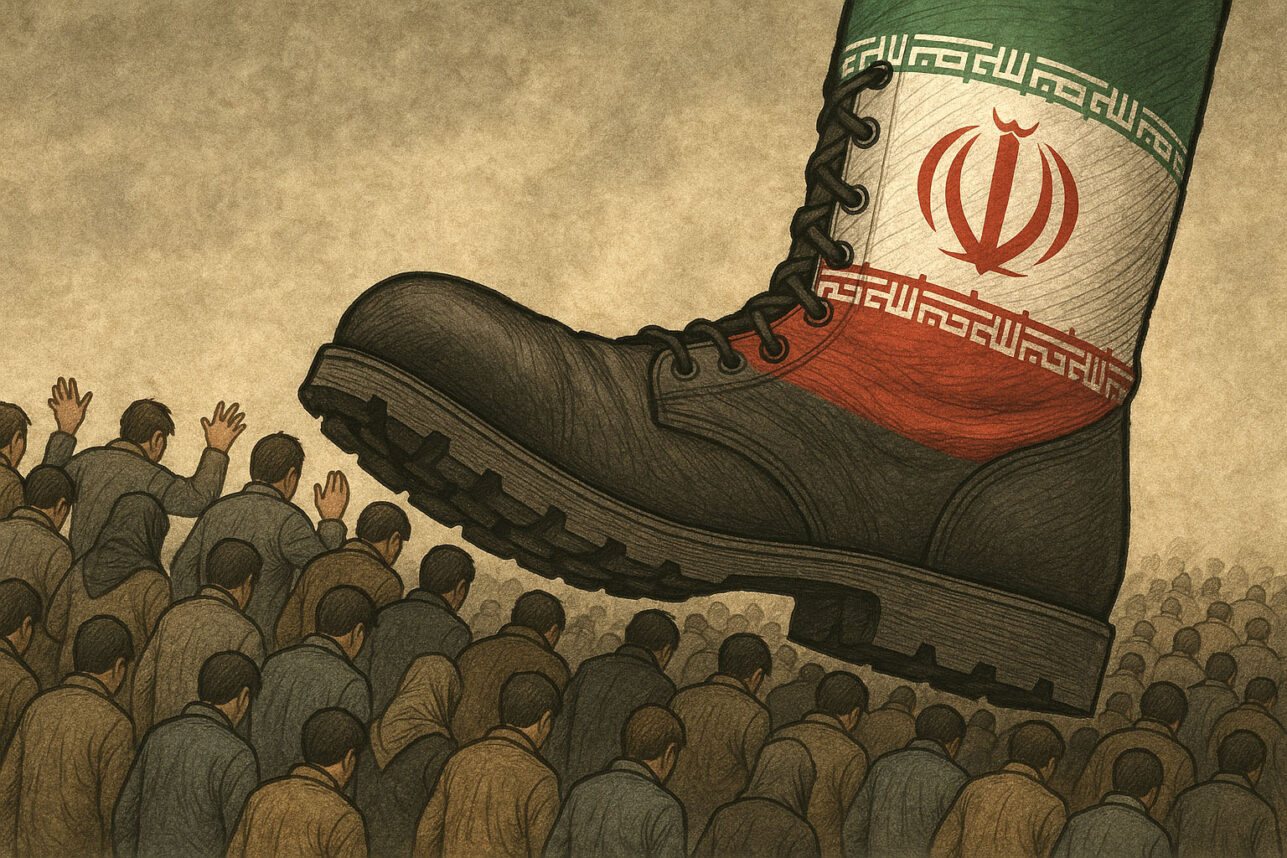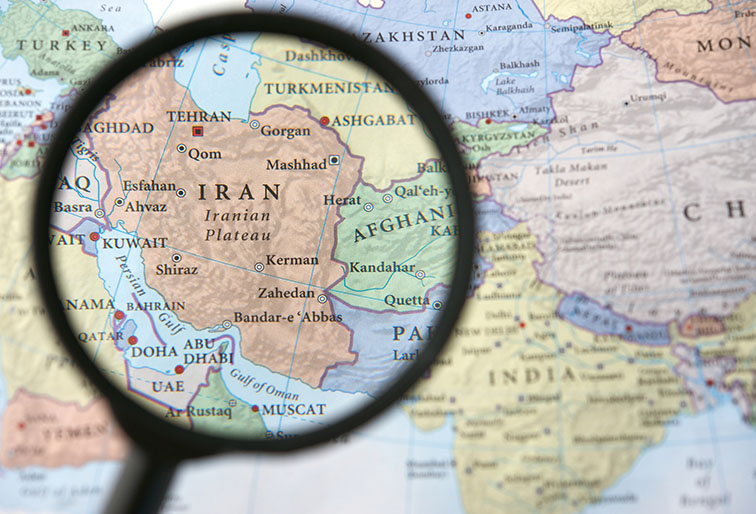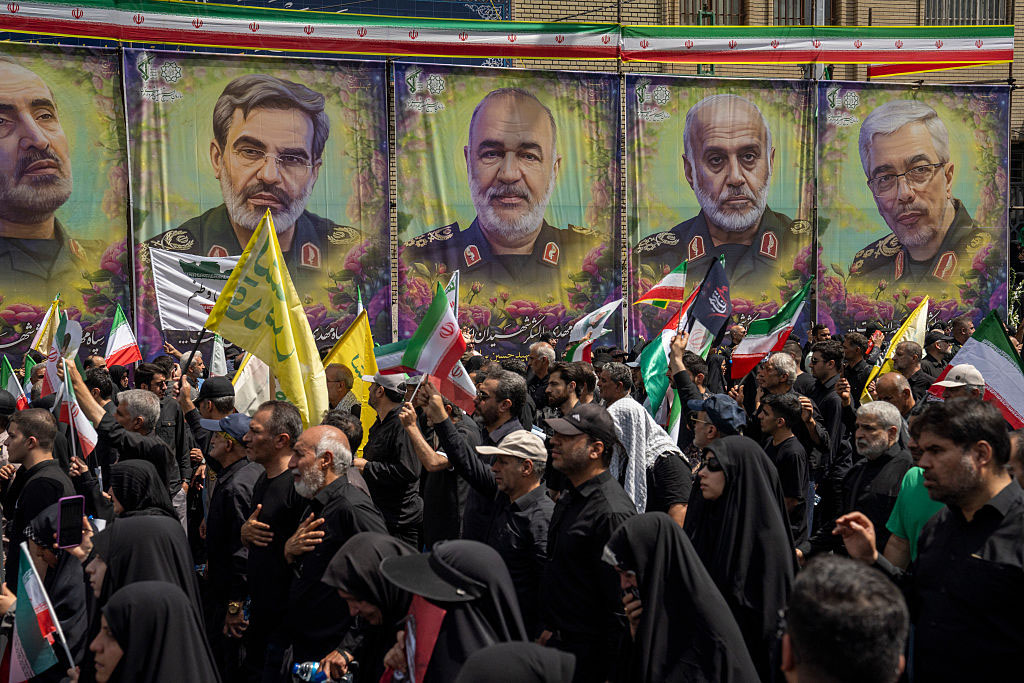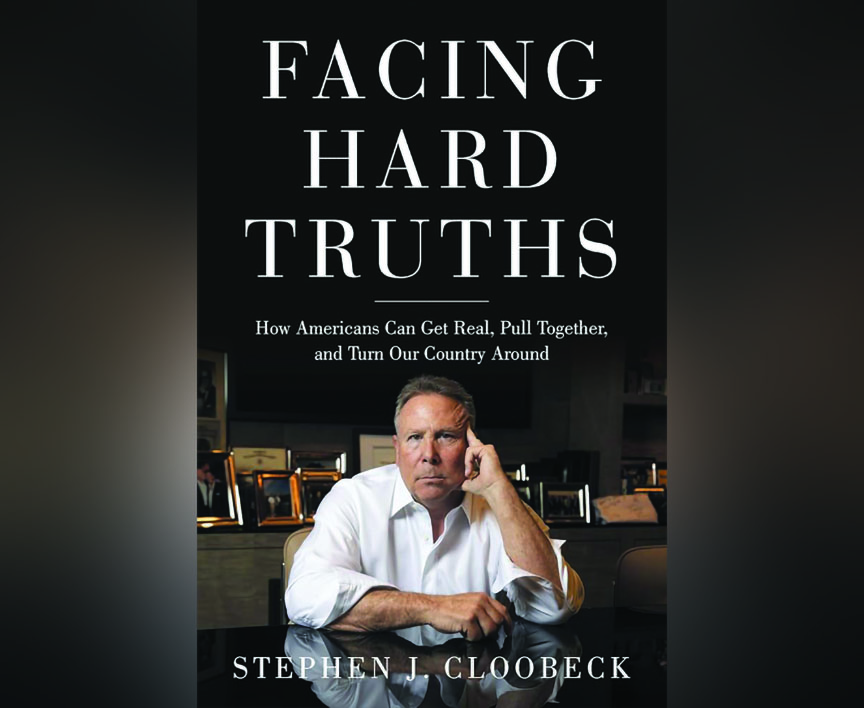One of the most common and polarizing debates in America today is about the relationship between religion and politics. To what extent should church and state be separate? Should our religious values and principles influence the way we participate in civil society, and should our texts and laws inform how we vote? These questions assume that religion and politics are completely separate entities, a notion this article will challenge. Is it, perhaps, that the Torah not only addresses the political but is fundamentally political?
The Language of the Torah
The rabbis of the Talmud explained that the Torah was not revealed in a perfect Divine language but in an imperfect human language, so that it could properly be understood (dibrah Torah k’lashon b’nei adam), (Sanhedrin 64b, Yerushalmi Shabbat 19:2). For the rabbis, the origin of the Torah is Divine, but when revealed in the language of humans it enters the same subjective mind and world as ordinary language. This invariably renders perfect interpretation or textual consistency impossible. This is not a hermeneutical problem unique to Torah. Rather, we understand in modernity that our mystical insights and psychological depth can never adequately be captured in language. Human experience is more profound than human language. Our primary grasp of the Divine, albeit elusive, is experiential and beyond the capacity of language. Rav Shimshon Raphael Hirsch explains the importance of this concept “dibrah Torah k’lashon b’nei adam:
“Jewish scholarship has never regarded the Bible as a textbook for physical or even abstract doctrines. In its view the main emphasis of the Bible is always on the ethical and social structure and development of life on earth; that is, on the observance of laws through which the momentous events of our nation’s history are converted from abstract truths into concrete convictions. That is why Jewish scholarship regards the Bible as speaking consistently in “human language;” the Bible does not describe things in terms of objective truths known only to God, but in terms of human understanding, which is, after all, the basis for human language and expression.” (Collected Writings vol. 7 p. 57)
A politician knows how to speak to a crowd and engage each different faction with his message. “Come and see how the voice went forth to all of Israel, to each and every one in keeping with his particular capacity to the elderly in keeping with their capacity, to young men in keeping with their capacity, to the little ones in keeping with their capacity, and to the women in keeping with their capacity. As it is said, ‘Moses spoke and G-d answered him with ‘a voice that he would have been able to withstand’” (Exodus Rabbah 5:9). G-d is the ultimate master of language and can speak to each individual’s particular language.
Baruch Spinoza argued that the Torah was political and thus it no longer had authority once the Jews lost political sovereignty. This is not the Jewish approach and we must rediscover what it means to be a religious-political people again both in the homeland and diaspora.
The Torah was given to be interpreted, to spread debate and argument over interpretation. The rabbis, the great interpreters of the Torah, created factions. Textual interpretation became a politically charged process. Perhaps, given the fragmented nature of the Jewish people in the 21st century, today’s rabbinic establishments are more political than they have ever been.
While the Torah is holy and elevated, the rabbis teach that the language of the Torah is regular human language. Thus, a philosophy of language that is true for secular language can also be true for religious language. So we may ask, what is the relationship between language and politics?
What is politics?
In the narrowest sense, politics is concerned with government. In the broader sense, politics refers to power dynamics in social relationships. When humans interact, their various interests interact. Individuals attempt to influence one another so that their wants and needs will be met. This can be achieved through force, coercion, persuasion, request, or various other means. These power dynamics can be found not only in government but in academia, business, the non-profit world, and everyday social life. Rather than always being “dirty and corrupt,” politics is an inevitable part of our everyday lives. It is not bad that life is political but merely the inevitable nature of existence in a world of complexity.
The Nature of Language: Is Language Political?
Scholars in linguistic anthropology, applied linguistics, and sociolinguistics have maintained that language is political. John E. Joseph has added that language and politics are dependent
upon one another. Joseph states: “It is evident that the state is a creation of nature, and that man is by nature a political animal” (Language and Politics, 2). Joseph believes that language originated from the expression of human needs and the desire to create friends and allies to achieve one’s goals. In addition, the birth of language was also the birth of politics:
1) languages themselves are constructed out of practices of speech and writing, and the beliefs (or ‘ideologies’) of those doing the speaking and writing; 2) my language is shaped by who it is that I am speaking to, and by how my relationship with them will be affected by what I say; 3) the politics of identity shapes how we interpret what people say to us, so much so as to be a prime factor in our deciding on the truth value of their utterances.
Joseph explains that politics occurs wherever there is an unequal distribution of power and where human behaviors are altered by the present power dynamics. He suggests that we use language to navigate our social existence within a political world, based on these five dimensions of relationship between language and politics:
• The politics of different ways of speaking
• The politics of talking to others
• The politics of what “the language” is
• The politics of which language to speak
• The politics of policing the language
Joseph argues that language is inherently political, as it is linked to identity, standardization, nationhood, and propaganda. Even if a speaker or writer has no political motivations per se, the utterance is still capable of being received as having political intent or meaning. When we observe applied linguistics, we can see the socio-political manifestations of language.
Jean-Louis Dessalles , a French scholar of the evolution of language, also argues that the birth of language was due to the needs of political coalitions.
We humans speak because change profoundly modified the social organization of our ancestors. In order to survive and procreate they found themselves needing to form coalitions of a considerable size. Language then appeared as a means for individuals to display their value as members of a coalition (331–332).
Stephen May explains that for too long, linguistics ” has been preoccupied with idealist, abstracted approaches to the study of language … in isolation from the social and political conditions in which it is used.” This neglect of historic and political factors has also afflicted the field of sociolinguistics, “despite its emphasis on the social, and of many discussions of LP [language policy] as well” (255).
In a hermeneutical act, we choose how we interpret the world, an experience, a person, or a text. This is a willed experience. Since all language is communicative, even a passive observer changes the observed. All language affects a listener and demands an interpretation. Language thus affects society as a whole through the construction of new realities.
Ludwig Wittgenstein, in his earlier years, believed that language had a purely analytical and logical nature. But his views evolved and he later argued that language is always embedded and can only be understood in relation to its context. John Austin and John Searle wrote of “speech acts,” since language cannot be understood outside of its context. Language is not eternally true but contextual.
Friedrich Nietzsche and Michel Foucault taught that we must be a part of a process of genealogy, or analysis, to uncover the historical relationship between knowledge, truth, and power. While truth and knowledge are often presented as being of a universal and eternal nature, they are actually produced through the struggles within and between institutions and disciplines of thought. Foucault explains that we gain “power-knowledge” when we make sense of ourselves and become subjects through the acquisition of knowledge. No individual or group holds power; power is, rather, a complex flow between different groups and relationships throughout society. This dynamic set of relations change with circumstances and time. Foucault, based upon Nietzsche, explains that “the will to power” is the notion that our social rules, discourses, sets of meaning, and truths do not merely emerge naturally but are produced to support particular groups and causes. All truth is political, since it is formed through power struggles.
Whereas Martin Heidegger critiqued “modernity” for forgetting the importance of being, postmodern philosophers have argued that it is language that has been forgotten. “Language” does not refer to English, Spanish, Hebrew, etc., but to the system of differences. The way we think and speak is conditioned by the particular “language” in which we dwell, the pattern of distinctions and connections that makes up our particular human experience. Language is neither objective nor commonly understood, but is subjective and tied to context and experience. In postmodernity, one is aware of the deconstructiveness of all systems of meaning and truth (i.e., the ability to understand language and truth in its context and system of power). Jacques Derrida is concerned with temporality and the effects of time on language, arguing that language is tied up in nets of identities and difference. Language can never describe the transcendental moves related to presence or absence since they are atemporal and outside the bounds of language, and anything outside of language we cannot speak about. Relational dynamics are the constitutive character of language.
In the structuralist tradition of linguistics, thinkers such as Ferdinand de Sassure and Roman Jakobson point out that language is only intelligible as part of an overarching structure. Words are signifiers that do not intrinsically point to the idea or thing being signified but are arbitrary signs that only make sense given the entire web of language.
Still another modern thinker, Noam Chomsky, taught that there is a “Universal Grammar,” the set of innate principles that serve as a foundation for all languages. However, some have misunderstood this to mean that languages are natural objects born out of mind. Chomsky meant this for the linguistic knowledge of individuals, but he has denied that it holds true for languages in general. Rather, languages are historical constructs born out of a political process.
The limitations of language can be exploited. The Sapir-Whorf hypothesis proposes that the language we speak affects the way we think. Edward Sapir described language as an “art,” and the power to shape language belongs to those most adept at foreseeing which forms will meet with approval. Psychologist Steven Pinker argues that people’s thoughts are determined by the categories available by their language. Further, Quentin Skinner teaches that the human capacity is limited by our language capacity, as our language constrains our thoughts.
The Choices of “Correct Language”
Who chooses if Ebonics is correct, or if Yiddish is appropriate? Who decides if a new word makes it into the dictionary and how it becomes defined?
Erving Goffman, in The Presentation of Self in Everyday Life, discusses how everyday social interactions, including spoken dialogues, are “theatrical performances” used to negotiate various stigmas. These “theatrical performances” of language often have direct effects on policy, enabling one faction to win.
All language has political implications. Race was not important ideologically in the 1700s, but within 300 years the discourse had turned to the idea that blacks were born to be slaves. This, of course, has had long-lasting political implications.
Aristotle argues that “man is by nature a political animal” (Politics I, 2) Rambam, following the reasoning of Aristotle, teaches that man is naturally a political and social being who seeks to form factions, classes, and communities (Guide for the Perplexed 2:40). All of our acts, not only our language, are political! Who determines which word choices are “politically correct” and which are not? It is not insignificant when we choose (or reject) language that our society tells us is not “politically correct.” Whether one refers to an individual as an “illegal alien” or a “domestic worker” is a political choice that represents very different values.
Two examples can illustrate how politics affects language. Russia, from the time of ancient Rus and its communal village land (the “mir,” which also means “peace”) through the Soviet period, has been a collective society. Even today, translators find it almost impossible to adequately express the word “privacy” in Russian. On the other hand, in the United States, where individualism has often been promoted over any obligation toward social welfare, Social Security, which used to be called (accurately) an old-age pensions system, is now referred to as an “entitlement,” which gives the false impression that it is a handout that an austere government has every right to cut.
George Orwell, in his seminal essay “Politics and the English Language,” critiqued the political use of language that seeks to conceal and not express meaning. He explained that we must learn to speak more clearly since this “is a necessary step toward political regeneration.” Aware that all language is political he admits: “Look back through this essay and for certain you will find that I have again and again committed the very faults I am protesting against.” We all make word choices that conceal rather than merely express.
The Divine engaged in “politics”
That G-d is referred to in masculine in the Torah has been described as a political choice. Words inevitably have values based upon their historical usage and current connotation.
If a nation is necessarily political, then when G-d names and designates a nation, is G-d creating a political faction? Further, since the choice of an audience is a political decision, is the Torah a message only for the Jews, or for the world? Is G-d the ultimate Divine politician trying to persuade constituents to abandon other candidates and vote exclusively for Him? The Jewish people, through our holy book, are broken up into coalitions, separations, and given unique designations. To deny the political nature to our tradition is to neglect the significance of those Divine value choices.
But Isn’t There an Apolitical Torah Somewhere?
The Torah primarily addresses issues of this world and so its essence is political. However, there is a spiritual and transcendental aspect to Torah as well that should not be overlooked. There are spiritual values that enable human transcendence from earthly concerns and G-d does, of course, have the capacity to use apolitical language. This is the primordial language that was used to create worlds. Human language, however, is a self-interested construct.
Perhaps only the rare apolitical use of human language exists within a space of love where one truly transcends oneself for another. Here, an other-interested language rather than a self-interested language is used, but this must be a very deep love-act. Ethics, justice, and politics are reserved for the public sphere since society is the primary concern of Torah. But love and care are uniquely reserved for intimate relationships. In a relationship of intimate love and care, language can have transcendental moments beyond the laden dimension of politics. This is an important part of the great miracle of human love.
Conclusion
What are the political implications of embracing language and all religion as political? The implication is that we transition from false notions of politics as solely partisan (e.g., Republican or Democrat, for or against a proposal or piece of legislation). We confuse ourselves and deceive others when we claim we are apolitical because we do not reveal our political party. Rather, as humans, our word choices engage a political process of conveying a meaning that attempts to connect with and persuade others. Even altruistic words and actions are persuasive, since politics is not only about intent, but impact. By embracing the Torah and G-d as a political act, we not only learn how to hold ourselves accountable for our language, we also raise the bar on the significance of our word choices. Where there is human difference, there is a need to clarify intentions. Where there is human want, there is a need to fulfill desires. Where there is human interaction, there are the politics of collaboration and competition, solidarity and combat, understanding and confusion. Onkeles claims that it is language that makes a being uniquely human. Embracing the reality that language has a political nature should inspire humility. We can remember our human limitations and how our language is self-interested and value-driven.
The Chofetz Chaim suggests that we must become so careful with our language that we perhaps should not even comment on whether we like the color of an object we observe, since we may offend a listener who owns something with this color. All Language affects others within a complex web of meaning. May we learn to use this capacity wisely in our complex world.
The Torah not only must address the most pressing political issues of our time, the Torah itself is political. When we embrace the Torah’s political choices, we can respond to contemporary political issues with more Jewish integrity.
Rabbi Shmuly Yanklowitz is the Founder & President of ” title=”http://shamayimvaretz.org/” target=”_blank”>The Shamayim V’Aretz Institute, the Director of Jewish Life & the Senior Jewish Educator at the UCLA Hillel and a 6th year doctoral candidate at Columbia University in Moral Psychology & Epistemology. Rav Shmuly’s book “Jewish Ethics & Social Justice: A Guide for the 21st Century” is now available on ” title=”http://www.thedailybeast.com/galleries/2012/04/02/america-s-top-50-rabbis-for-2012.html#slide40″ target=”_blank”>most influential rabbis in America.

































 More news and opinions than at a Shabbat dinner, right in your inbox.
More news and opinions than at a Shabbat dinner, right in your inbox.